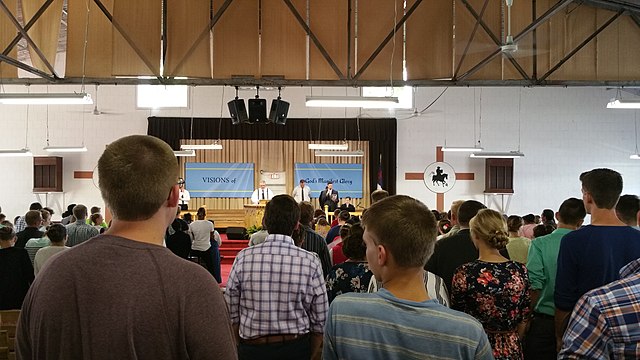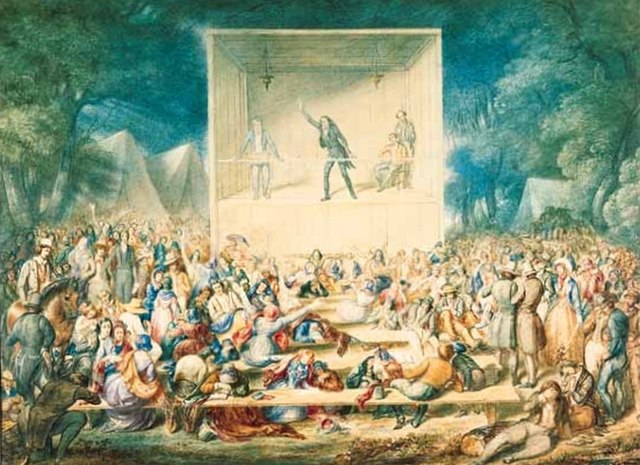The camp meeting is a form of Protestant Christian religious service originating in England and Scotland as an evangelical event in association with the communion season. It was held for worship, preaching and communion on the American frontier during the Second Great Awakening of the early 19th century. Revivals and camp meetings continued to be held by various denominations, and in some areas of the mid-Atlantic, led to the development of seasonal cottages for meetings.
A service of worship at the tabernacle of a camp meeting of the Allegheny Wesleyan Methodist Connection, held at Wesleyan Methodist Camp in Stoneboro, Pennsylvania.
An engraving of a Methodist camp meeting in 1819 (Library of Congress).
A watercolor painting of a camp meeting circa 1839 (New Bedford Whaling Museum).
The tabernacle of Pleasant Grove Camp Meeting Ground, owned by the United Methodist Church.
The Second Great Awakening was a Protestant religious revival during the late 18th to early 19th century in the United States. It spread religion through revivals and emotional preaching and sparked a number of reform movements. Revivals were a key part of the movement and attracted hundreds of converts to new Protestant denominations. The Methodist Church used circuit riders to reach people in frontier locations.
A Methodist camp meeting in 1819 (hand colored engraving)
1839 Methodist camp meeting





